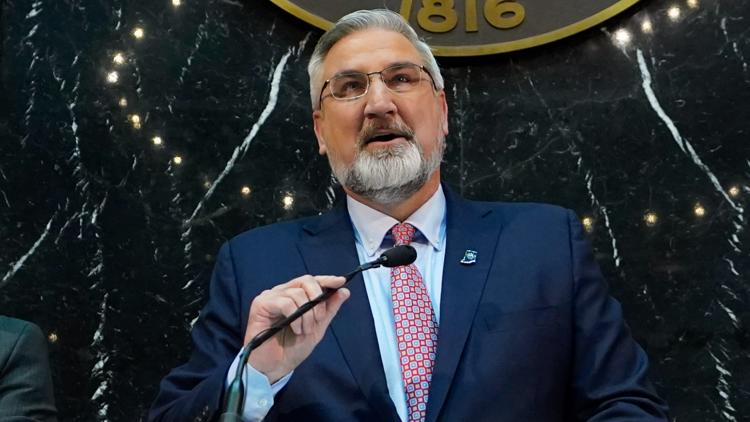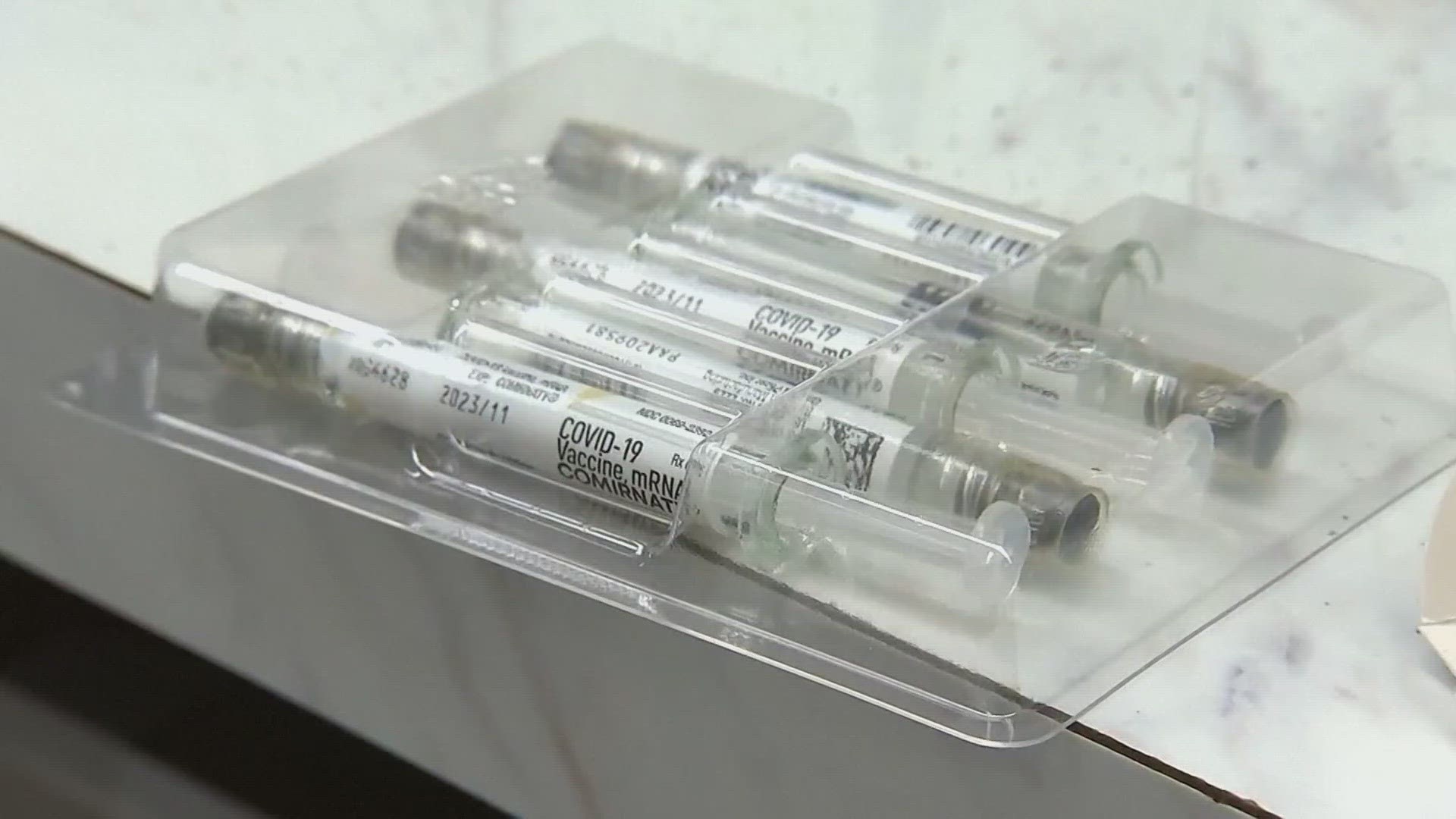INDIANAPOLIS — Indiana lawmakers gave final approval Thursday to administrative steps Gov. Eric Holcomb said were necessary to end the statewide COVID-19 public health emergency while still protecting enhanced federal funding.
The governor’s office said Holcomb signed the bill into law shortly after Indiana House members voted by a wide margin in favor of the bill, setting the stage for Holcomb to lift the emergency declaration after nearly two years.
Holcomb later Thursday signed an executive order ending the current public health emergency. It was due to expire Saturday.
Lawmakers approved the measure even though the state Senate had removed provisions sought by House Republicans that would have forced businesses to give requested religious exemptions from COVID-19 vaccine requirements.
Holcomb first issued a public health emergency on March 6, 2020, and had issued 23 monthly extensions, which drew the ire of many conservatives even though any mask mandates or business restrictions ended in spring 2021.
Holcomb and Senate Republican leaders had sided with major business groups in opposing broad limitations on workplace vaccine requirements sought by many conservatives upset over President Joe Biden’s failed attempt to require large employers to have their workers be vaccinated or tested weekly for COVID-19.
Republican House Majority Leader Matt Lehman of Berne sponsored the bill and urged House members to support it while admitted it didn’t go as far as he wanted in protecting workers.
“I think this is a good step forward and I think we need to move forward,” Lehman said.
The new law, which took effect with Holcomb's signature, requires businesses to grant medical vaccine exemptions approved by doctors for workers along with religious exemptions as required by federal law and mandate that employers accept as a vaccine exemption a worker’s medical test results showing some level of “natural immunity” through a previous infection. Employees could be required to undergo COVID-19 tests up to twice a week.
The bill includes legal changes sought by Holcomb that would enable the state to keep receiving about $40 million each month in enhanced federal funding for Medicaid and for about 200,000 households to continue receiving an additional $95 a month in federal food assistance. Another step would let the state health commissioner continuing issuing a standing doctor’s order for the administration of COVID-19 vaccinations to children ages 5 to 11.
Many health experts opposed ending the public health emergency when Holcomb first made his proposal in November, which led to a failed attempt by House Republicans to force through the broad exemptions within a matter of days.
Indiana’s COVID-19 situation has changed drastically since then, when the state was experiencing a steep increase in hospitalizations and deaths from the illness.
The total COVID-19 patients at Indiana hospitals has dropped to about 700 people, down about 80% from mid-January’s peak of about 3,500, according to state health department tracking. Indiana’s rate of COVID-19 deaths is now about 25 a day, down from about 75 a day in that same time.
Both rates, however, are far above those in July when Indiana had about 400 COVID-19 hospitalizations and was averaging fewer than five daily deaths.
House members voted 78-10 in favor of the bill, with primarily the most conservative Republicans voting against it.
Democratic senators objected last week to a bill provision that would cut off Indiana’s participation in the enhanced federal funding for food assistance as of April 16, which is when the current federal COVID-19 health emergency expires. Republicans argue that the extra money was no longer needed with low unemployment levels in the state.
House Democratic leader Phil GiaQuinta of Fort Wayne, however, said he believed the bill “ends the public health emergency in a way that supports the governor and the governor’s efforts to end COVID-19 while making sure Hoosiers still get the help that they need.”



